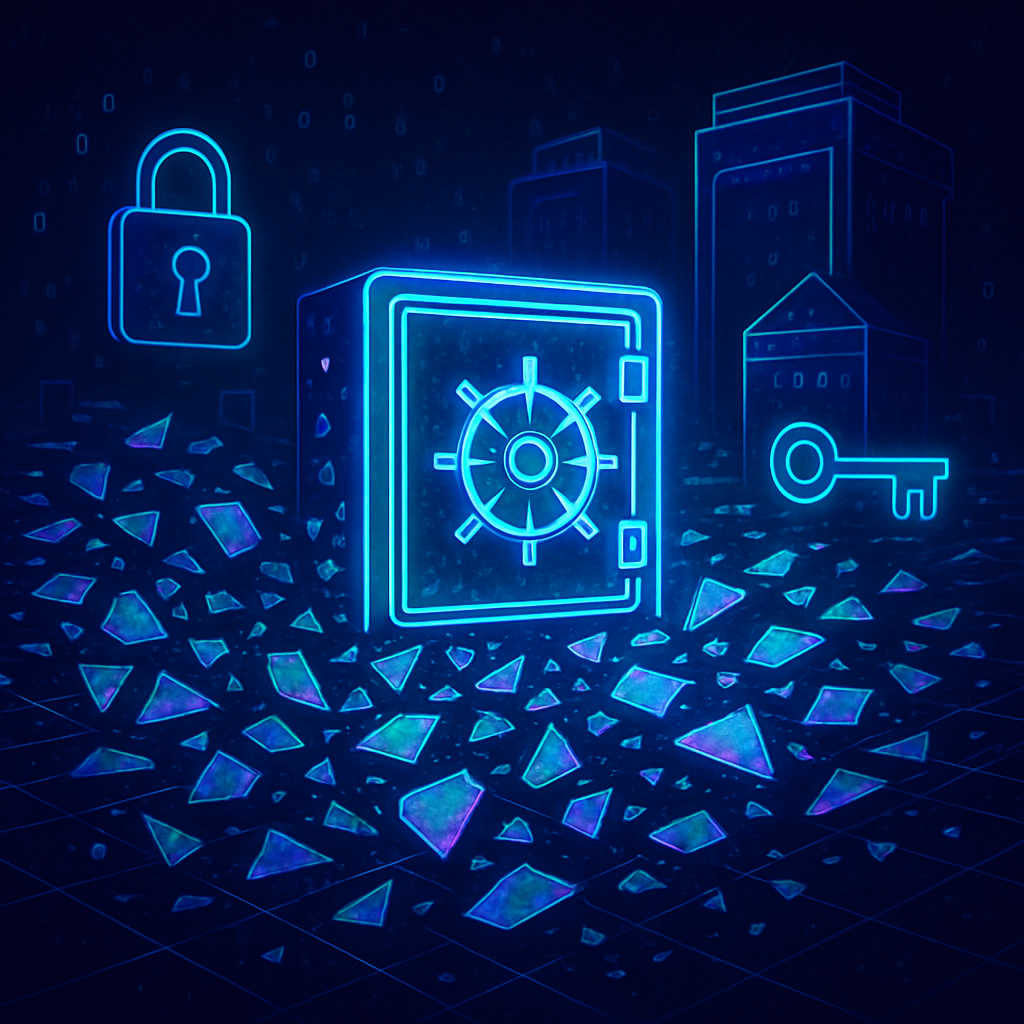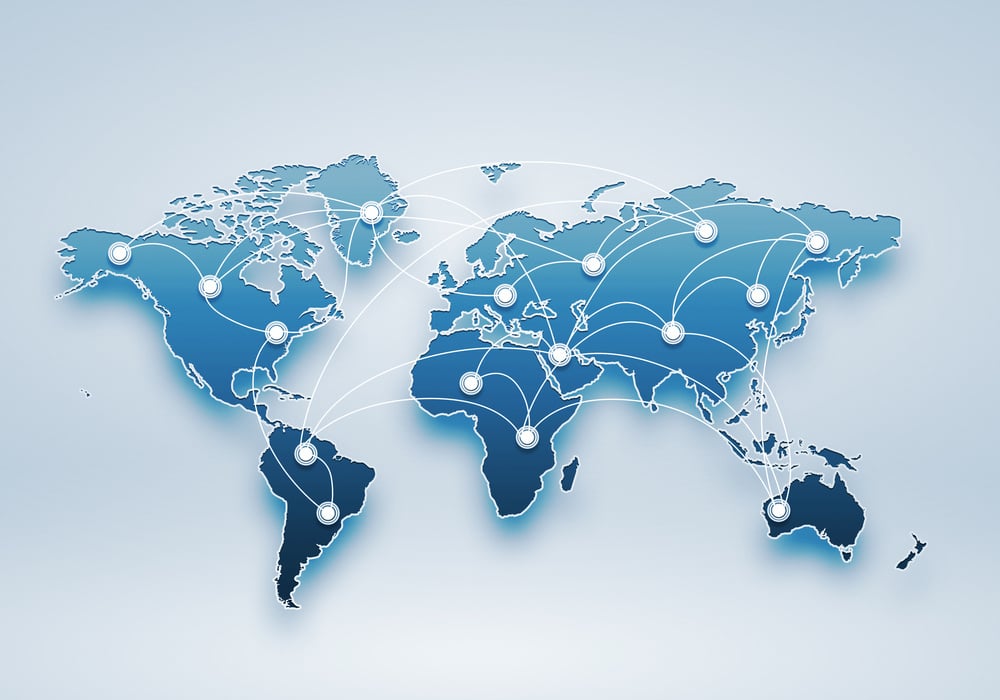Five Reasons Why Data Privacy Is Vital for Biotech Companies
Cellular modeling. Disease therapeutics. Better diagnostic tests. mRNA breakthroughs. Each of these cutting-edge biotechnology innovations has data at its core. Indeed, to make their discoveries, biotech companies must handle vast amounts of sensitive data, including patient information, clinical trial data, intellectual property, and proprietary research.
As a result, protecting valuable biotech data from unauthorized access has become paramount. With cyber threats and regulatory compliance requirements on the rise, companies are looking for data privacy tools to safeguard their valuable assets and maintain their reputation.
What are the top five reasons data privacy is vital for biotech companies?
Data privacy can help prevent leaks and breaches in any sector. But it’s especially vital in the biotechnology and pharmaceutical industries, where the cost of a data breach can be much higher than in any other industry. (Compare the $9.44 million cost of an average breach to the $10.1 million price tag in the healthcare sector.)
Beyond financial losses, data exposure can compromise research, patient privacy, and regulatory compliance. Below, we’ll dig deeper into the top five reasons why data privacy is vital for biotech companies.
1. Protecting intellectual property
IP is highly valuable, with intangible intellectual assets representing up to 85% of a tech company’s value. The value of intangible assets stolen from the US economy every year is also high, ranging between $225 and $600 billion.
For biotech companies, IP can come in many forms. It may include patient test results, patentable research results, proprietary formulas, details about production and quality assurance processes, documentation for manufacturing teams, economic projections, marketing plans for product launches, and more.
Biotech and pharmaceutical companies rely on this IP to drive their innovation and gain a competitive edge. Strong data privacy is needed to protect it from theft and the resultant financial losses.
2. Mitigating risks from third-party data sharing
Most companies have to contend with the data privacy risks that third-party vendors bring. But biotech companies face additional risks from collaborating with research institutions, healthcare organizations, and other third parties who must share access to their sensitive data. AI tools are accelerating the data-sharing revolution, with many large pharma companies collaborating to share data and facilitate new discoveries in projects like the Machine Learning Ledger Orchestration for Drug Discovery (MELLODDY).
With the rise in data sharing comes the need for advanced data privacy tools and processes. This may include strict data sharing agreements, regular audits of vendor security practices, role-based access controls, and file-based encryption solutions.
3. Safeguarding patient data
We can clearly see the importance of protecting patient data when we consider the impact of cyberattacks on healthcare organizations. For example, a 2015 breach on the US health insurance company Anthem compromised the personal information of 78 million individuals and led to significant financial losses for the company. Meanwhile, a 2020 ransomware attack on the Vastaamo psychotherapy center in Finland led patients to pay ransoms in an effort to avoid having their mental health records published on the web.
The same incentives that motivate cyberattackers to target healthcare organizations — highly valuable personal information that can be used for identity theft, double extortion ransomware attacks, and insurance fraud — are present for many biotech companies as well, since these companies also collect and analyze sensitive patient data. To avoid newsworthy security breaches, biotech organizations must ensure that their sensitive data is securely stored, transmitted, and accessed only by authorized personnel.
4. Meeting regulatory compliance
Today’s data privacy regulations require stringent protections for many types of personal data, including healthcare information, regular PII, and patient data related to clinical trials. Without strong data privacy practices, biotech companies risk major fines and legal action under an increasing number of regulations.
Today’s data privacy regulations require stringent protections for many types of personal data, including healthcare information, regular PII, and patient data related to clinical trials. Without strong data privacy practices, biotech companies risk major fines and legal action under an increasing number of regulations.
GDPR. Like other businesses, biotechnology companies must protect personal identifiable information from EU data subjects when they collect, process, and store data under the General Data Protection Regulation (GDPR). We explain the nuances of this regulation and how ShardSecure meets Use Case 5 of Schrems II for GDPR compliance in our white paper.
HIPAA. While the Health Insurance Portability and Accountability Act applies mostly to organizations like hospitals, doctor’s offices, and health insurance providers, it also governs companies that process some types of protected health information. Not all biotech companies have to meet HIPAA compliance, but many do — particularly if they act as “business associates” of healthcare organizations that are bound by HIPAA.
CCPA. The scope of the California Consumer Privacy Act is complex. While the CCPA does not govern certain kinds of organizations — or certain kinds of data, including HIPAA-protected health information and specific types of clinical data — it generally still applies to biotech companies that process the data of California residents. As such, most biotech companies would do well to implement data privacy processes that meet CCPA compliance.
5. Protecting reputations
In a competitive marketplace, biotech companies need to maintain customer trust at all costs. Data breaches and privacy incidents can severely damage a biotech company’s reputation, leading to a decline in customer confidence, investor support, and future partnerships.
Fortunately, a strong commitment to data privacy can help an organization distinguish itself as trustworthy. Indeed, one study by PwC found that having strong cybersecurity measures made businesses more likely to be perceived as trustworthy and reliable. Biotech companies that prioritize data privacy send a clear message to stakeholders that they take security seriously and are dedicated to responsible data handling practices.
Strengthening data privacy with ShardSecure
ShardSecure mitigates data privacy risks for biotech companies by protecting sensitive data from unauthorized access. Our platform works to separate data owners from infrastructure providers like cloud storage admins — without the complexity of legacy encryption solutions or the need for agents.
ShardSecure’s technology allows biotech companies to address data sovereignty and residency concerns by storing their valuable IP and patient data in whatever locations they choose: on-prem, cloud, and hybrid- or multi-cloud environments. It also helps organizations meet the requirements of Use Case 5 in Schrems II for GDPR compliance.
To learn more about the ShardSecure platform, visit our resources page.
Sources
Biotechnology Security: Why Biotech Companies Can't Ignore It | Transcription Wing
Healthcare Data Breaches Cost $10.1M on Average, More Than Any Other Industry | SC Media
Intellectual Property Breaches: A New Target for Cybercriminals | Security Boulevard
Preventing Data Leaks in Pharmaceutical & Biotechnology Sector | Sealpath
Ten Big Pharma Companies Collaborate on Data Sharing AI | European Pharmaceutical Review
Consumer Information on Anthem Blue Cross Data Breach | California Department of Insurance
Hacker Seeks To Extort Finnish Mental Health Patients After Data Breach | Politico






